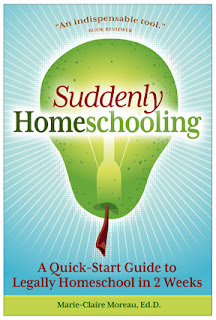
 As the mother of three girls who are 11, 14 and 15, I was interested to read Dr. John Duffy's new book The Available Parent: Radical Optimism for Raising Teens and Tweens. I feel like I have great relationships with my girls already, so I was a little surprised how much I learned from the book. One of my biggest problems as a parent, that I'm not always aware of, is letting go. My oldest will be 16 in a few months, and it's hard to imagine her as an adult, yet time keeps speeding by and she's ever-increasingly closing in on the age of adulthood.
As the mother of three girls who are 11, 14 and 15, I was interested to read Dr. John Duffy's new book The Available Parent: Radical Optimism for Raising Teens and Tweens. I feel like I have great relationships with my girls already, so I was a little surprised how much I learned from the book. One of my biggest problems as a parent, that I'm not always aware of, is letting go. My oldest will be 16 in a few months, and it's hard to imagine her as an adult, yet time keeps speeding by and she's ever-increasingly closing in on the age of adulthood.
The book begins with a few introductory chapters, which are followed by three parts: "Your Teenager's Wild World", "What Always Works", and "What Never Works". Here's a quote from the introduction that kind of sets the tone for the book, and which I found particularly comforting.
"As confounding as parenting a teen can feel day to day, I want you to keep in mind that our job is actually abundantly clear. Our goal is to foster an environment that is most likely to provide a sense of competence and resilience. Competence and resilience. That's it. As long as you remember this goal when you are confronted with decisions about your adolescent, be it about discipline, bullying, school, drugs, or too much TV, your compass will be pointed in a clear direction, and you will feel increasingly comfortable with your decision-making ability, as time goes on.
Further, you need to know that you have all the influence you need to be a force in your teen's life. Recent research indicates that the vast majority of teens spend at least three times as much time with peers as with parents. Despite this statistic, research also continues to support the idea that parents remain the strongest influence in the lives of their teens by far, in both their beliefs and decision making. You remain your teen's primary role model, and you carry more influence than you may believe.
Your availability will be a function of faith that your influence in combination with her own inner strength and wisdom, will carry your child through any challenge. [...] Open yourself up, become available, have faith in her, and slowly, perhaps very slowly, you will begin to see change. Close yourself off to the possibility of it, assume the worst about your teenager, and you are contributing rather needlessly, to a self-fulfilling, self-defeating prophecy."
Part 1: Your Teenager's Wild World covers the issues that teenagers are facing and dealing with today. Many of them we're not dealing with yet, as our children are homeschooled, but I always have in the back of my head that these things are coming, and, to tell you the truth, sometimes it scares the cr@p out of me. In this part, Dr. Duffy touches on what's going on in "the adolescent mind" as well as the natural separation that needs to happen for teenagers. There are some great tips in this part on teaching teens to understand and manage their own emotions that are inevitable as teens try to establish a unique identity for themselves and discover the type of person they strive to become.
In Part 2, the author discusses "what never works": lectures, vicarious living, micromanaging, snooping, underestimating, blinders, judging, smothering, coddling, overindulgence, bribery, "good cop bad cop", and waiting. Half of those things, I have no issues with, but I do have to admit to smothering and bribery, and before reading this book, I hadn't seen any problems with snooping or lecturing. Reading these chapters really gave me a new perspective on my own behavior as a parent.
In Part 3, Dr. Duffy offers what he proposes "always works". He begins with asking parents to check their ego at the door. "Our job is to be available, to guide them, to counsel them, and then to get out of the way to let them establish who they are, and let them be themselves." Our job is not to diagnose them, change them or put "conditions" on our love for them. As an alternative to punishments, he encourages parents to focus on their children's positive behavior and negotiate and draw up a behavior contract with a list of behaviors and their consequences every 6 months or so. Dr. Duffy goes on to ask parents to find and support their teen's strengths and interests, set a good example, and, of course, be available.
I really enjoyed this book, and think it's definitely one to read and then keep in your library to refer back to from time to time.
What's the best parenting advice you've received?












































